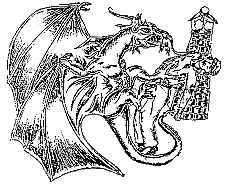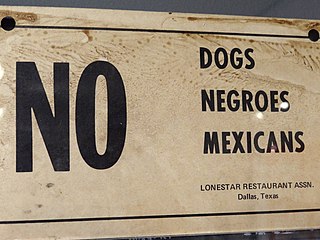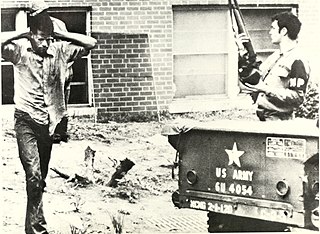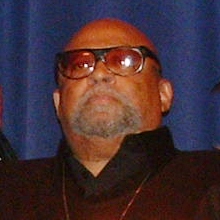 W
WDuring their medal ceremony in the Olympic Stadium in Mexico City on October 16, 1968, two African-American athletes, Tommie Smith and John Carlos, each raised a black-gloved fist during the playing of the US national anthem, "The Star-Spangled Banner". While on the podium, Smith and Carlos, who had won gold and bronze medals respectively in the 200-meter running event of the 1968 Summer Olympics, turned to face the US flag and then kept their hands raised until the anthem had finished. In addition, Smith, Carlos, and Australian silver medalist Peter Norman all wore human-rights badges on their jackets.
 W
WAfrocentrism is an approach to the study of world history that focuses on the history of people of recent African descent. It is in some respects a response to global (Eurocentric) attitudes about African people and their historical contributions; it seeks to correct what it sees as mistakes and ideas perpetuated by the racist philosophical underpinnings of western academic disciplines as they developed during and since Europe's Early Renaissance as justifying rationales for the enslavement of other peoples, in order to enable more accurate accounts of not only African but all people's contributions to world history. Afrocentricity deals primarily with self-determination and African agency and is a Pan-African point of view for the study of culture, philosophy, and history.
 W
WAll Power to the People: The Black Panther Party and Beyond is a 1996 documentary directed by Lee Lew-Lee. The film chronicles the history of the Black Panther Party, leadership, and members. The film also briefly chronicles the history of the American Indian Movement and Black Liberation Army. The film covers assassinations and methods used to divide, destroy, and imprison key figures within the party. It is composed primarily of archival footage and interviews of former organization members and government agents. The documentary was broadcast in 24 countries on 12 networks in the United States, Canada, Europe, Asia and Australia between 1997 and 2000.
 W
WAssata: An Autobiography is a 1988 autobiographical book by Assata Shakur. The book was written in Cuba where Shakur currently has political asylum.
 W
WThe Black Arts Movement (BAM) was an African American-led art movement, active during the 1960s and 1970s. Through activism and art, BAM created new cultural institutions and conveyed a message of black pride.
 W
WThe Black Catholic Movement or Black Catholic Revolution was a movement of African-American Roman Catholics in the United States that developed and shaped modern Black Catholicism.
 W
WThe Black Guerilla Family is an African-American black power prison and street gang founded in 1966 by George Jackson, George “Big Jake” Lewis, and W. L. Nolen while they were incarcerated at San Quentin State Prison in Marin County, California.
 W
WBlack Lives Matter (BLM) is a decentralized political and social movement protesting against incidents of police brutality and all racially motivated violence against black people. While there are specific organizations such as the Black Lives Matter Global Network that label themselves simply as "Black Lives Matter", the Black Lives Matter movement comprises a broad array of people and organizations. The slogan "Black Lives Matter" itself remains untrademarked by any group. The broader movement and its related organizations typically advocate against police violence toward black people as well as for various other policy changes considered to be related to black liberation.
 W
WThe Black Panther Party (BPP), originally the Black Panther Party for Self-Defense, was a Black Power political organization founded by college students Bobby Seale and Huey P. Newton in October 1966 in Oakland, California. The party was active in the United States between 1966 and 1982, with chapters in many major cities and international chapters in Britain and Algeria. Upon its inception the Black Panther Party's core practice was its open carry armed citizens' patrols ("copwatching") to monitor the behavior of officers of the Oakland Police Department and challenge police brutality in the city.
 W
WThe Black Power movement was a social movement motivated by a desire for safety and self-sufficiency that was not available inside redlined African American neighborhoods. Black Power activists founded black-owned bookstores, food cooperatives, farms, media, printing presses, schools, clinics and ambulance services. The international impact of the movement includes the Black Power Revolution in Trinidad and Tobago.
 W
WBlack Power: The Politics of Liberation is a 1967 book co-authored by Stokely Carmichael and political scientist Charles V. Hamilton. The work defines Black Power, presents insights into the roots of racism in the United States and suggests a means of reforming the traditional political process for the future. Published originally as Black Power: The Politics of Liberation in America, the book has become a staple work produced during the Civil Rights Movement and Black Power movement.
 W
WBlack-brown unity, variations include black-brown-yellow unity and black-brown-yellow-red unity, is a racial-political ideology which initially developed among black scholars, writers, and activists who pushed for global activist associations between black people and brown people, as well as Asian people and Indigenous peoples of the Americas to unify against white supremacy, colonialism, capitalism, and, in some cases, European conceptualizations of masculinity, which were recognized as interrelated in maintaining white racial privilege and power over people of color globally.
 W
WKwame Ture was a prominent organizer in the civil rights movement in the United States and the global Pan-African movement. Born in Trinidad, he grew up in the United States from the age of 11 and became an activist while attending the Bronx High School of Science. He was a key leader in the development of the Black Power movement, first while leading the Student Nonviolent Coordinating Committee (SNCC), then as the "Honorary Prime Minister" of the Black Panther Party (BPP), and last as a leader of the All-African People's Revolutionary Party (A-APRP).
 W
WThe George Jackson Brigade was a revolutionary group founded in the mid-1970s, based in Seattle, Washington, and named after George Jackson, a dissident prisoner and Black Panther member shot and killed during an alleged escape attempt at San Quentin Prison in 1971. The group combined veterans of the women's liberation movement, homosexuals and Black prisoners.
 W
WThe Glenville shootout was a gun battle that occurred on the night of July 23–24, 1968, in the Glenville section of Cleveland, Ohio, in the United States. Gunfire was exchanged for roughly four hours between the Cleveland Police Department and the Black Nationalists of New Libya, a Black Power group. The battle led to the death of three policemen, three suspects, and a bystander. At least 15 others were wounded.
 W
WThe 1969 Greensboro uprising occurred on and around the campuses of James B. Dudley High School and North Carolina Agricultural and Technical State University (A&T) in Greensboro, North Carolina, when, over the course of May 21 to May 25, gunfire was exchanged between student protesters, police and National Guard. One bystander, sophomore honors student Willie Grimes, was killed, although whether he was killed by police or protesters remains unknown.
 W
WThe Huey P. Newton Gun Club is a group named after Black Panther Party co-founder and Minister of Defense Huey P. Newton.
 W
WMaulana Ndabezitha Karenga, previously known as Ron Karenga, is an American professor of Africana studies, activist, and author best known as the creator of the pan-African and the African-American holiday of Kwanzaa.
 W
WKwanzaa is an annual celebration of African-American culture that is held from December 26 to January 1, culminating in a communal feast called Karamu, usually held on the 6th day. It was created by Maulana Karenga, based on African harvest festival traditions from various parts of Africa, including West and Southeast Africa. Kwanzaa was first celebrated in 1966.
 W
WVarious American fugitives in Cuba have found political asylum in Cuba after participating in militant activities in the Black power movement or the Independence movement in Puerto Rico. Other fugitives in Cuba include defected CIA agents and others. The Cuban government formed formal ties with the Black Panther Party in the 1960s, and many fugitive Black Panthers would find political asylum in Cuba, but after their activism was seen being repressed in Cuba many became disillusioned. House Concurrent Resolution 254, passed in 1998, put the number at 90. One estimate, c. 2000, put the number at approximately 100.
 W
WThe National Joint Action Committee (NJAC) is a political party in Trinidad and Tobago.
 W
WThe New Afrikan Black Panther Party (NABPP) is a Black Power and Maoist organization in the United States, largely based in prison and referred to as the New Afrikan Black Panther Party – Prison Chapter (NABPP-PC). The party is built as a modern-day continuation of the Black Panther Party prison chapter developed by George Jackson and W. L. Nolen.
 W
WPanther is a 1995 cinematic adaptation of Melvin Van Peebles's novel Panther, produced and directed by Mario Van Peebles. The drama film portrays the Black Panther Party for Self-Defense, tracing the organization from its founding through its decline in a compressed timeframe. It was the first narrative feature-film to depict the Black Panther Party.
 W
WThe Republic of New Afrika (RNA), founded in 1968 as the Republic of New Africa (RNA), is a black nationalist organization and black separatist movement in the United States popularized by black militant groups. The larger New Afrika movement in particular has three goals:Creation of an independent black-majority country situated in the Southeastern United States, in the heart of an area of black-majority population. Payment by the federal government of several billion dollars in reparations to African-American descendants of slaves for the damages inflicted on Africans and their descendants by chattel enslavement, Jim Crow laws, and modern-day forms of racism. A referendum of all African Americans to determine their desires for citizenship; movement leaders say their ancestors were not offered a choice in this matter after emancipation in 1865 following the American Civil War.
 W
WRevolutionary Suicide is an autobiography written by Huey P. Newton with assistance from J. Herman Blake originally published in 1973. Newton was a major figure in the American black liberation movement and in the wider 1960's counterculture. He was a co-founder and leader of what was then known as the Black Panther Party (BPP) for Self-Defence with Bobby Seale. The Chief ideologue and strategist of the BPP, Newton taught himself how to read during his last year of high school, which led to his enrollment in Merrit College in Oakland in 1966; the same year he formed the BPP. The Party urged members to challenge the status quo with armed patrols of the impoverished streets of Oakland, and to form coalitions with other oppressed groups. The party spread across America and internationally as well, forming coalitions with the Vietnamese, Chinese, and Cubans. This autobiography is an important work that combines political manifesto and political philosophy along with the life story of a young African American revolutionary. The book was not universally well received but has had a lasting influence on the black civil rights movement and resonates today in the Black Lives Matter movement.
 W
WSalute is a 2008 Australian sports documentary film directed, produced and written by Matt Norman. It tells the role of Peter Norman, Norman's uncle, in a defining moment of the American civil rights movement: the 1968 Olympics Black Power salute.
 W
WSeize The Time: The Story of The Black Panther Party and Huey P. Newton is a 1970 book by political activist Bobby Seale. It was recorded in San Francisco County Jail between November 1969 and March 1970, by Arthur Goldberg, a reporter for the San Francisco Bay Guardian. An advocacy book on the cause and principles of the Black Panther Party, Seize The Time is considered a staple in Black Power literature.
 W
WAssata Olugbala Shakur is a former member of the Black Liberation Army (BLA), who was convicted in the first-degree murder of State Trooper Werner Foerster during a shootout on the New Jersey Turnpike in 1973. Shakur is wanted by the FBI and there is a $2 million reward for her apprehension.
 W
WThe Student Nonviolent Coordinating Committee was the principal channel of student commitment in the United States to the civil rights movement during the 1960s. Emerging in 1960 from the student-led sit-ins at segregated lunch counters in Greensboro, North Carolina, and Nashville, Tennessee, the Committee sought to coordinate and assist direct-action challenges to the civic segregation and political exclusion of African Americans. From 1962, with the support of the Voter Education Project, SNCC committed to the registration and mobilization of black voters in the Deep South. Affiliates such as the Mississippi Freedom Democratic Party and the Lowndes County Freedom Organization in Alabama increased dramatically the pressure on federal and state government to enforce constitutional protections.
 W
WThe Taking the Initiative Party (TTIP) is a political party in the UK. It has been described as a political movement inspired by, or emerging from, the Black Lives Matter movement. It was registered with the Electoral Commission in 2017.
 W
WThe Weather Underground was a radical left wing militant organization first active in 1969, founded on the Ann Arbor campus of the University of Michigan. Originally known as the Weathermen, the group was organized as a faction of Students for a Democratic Society (SDS) national leadership. Officially known as the Weather Underground Organization (WUO) beginning in 1970, the group's express political goal was to create a revolutionary party to overthrow American imperialism.
 W
WThe White Panthers were an anti-racist political collective founded in November 1968 by Pun Plamondon, Leni Sinclair, and John Sinclair. It was started in response to an interview where Huey P. Newton, co-founder of the Black Panther Party, was asked what white people could do to support the Black Panthers. Newton replied that they could form a White Panther Party. The counterculture era group took the name and dedicated its energies to "cultural revolution". John Sinclair made every effort to ensure that the White Panthers were not mistaken for a white supremacist group, responding to such claims with "quite the contrary." The party worked with many ethnic minority rights groups in the Rainbow Coalition.